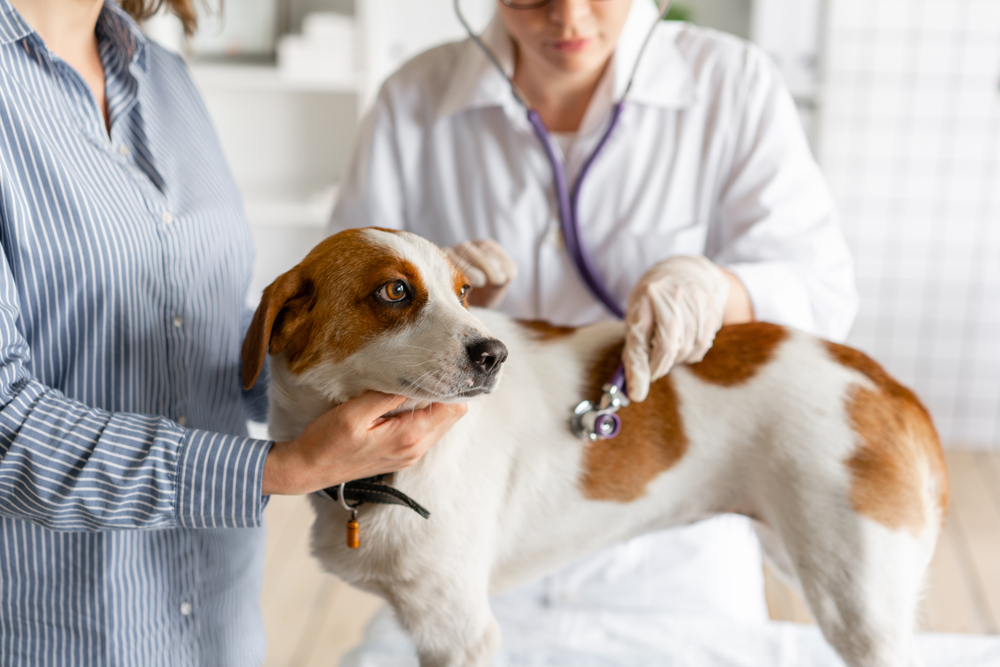How Often Should I Take My Dog to the Vet?
In general, all dogs should receive a thorough physical examination at least once a year. Consider it routine dog maintenance. These wellness examinations enable you to monitor your dog’s growth and development and address any issues with your veterinarian. Annual examinations, most crucially, are a critical component of preventative treatment.

Routine checkups and vaccinations
The idea is that by scheduling routine wellness checks for your dog, you can make informed decisions about their health. Additionally, you’ll learn about illnesses or problems early on, which is critical for successful treatment. During annual wellness exams, the veterinarian will conduct a thorough examination of your dog. They’ll listen to their heart and lungs, examine their eyes and hearing, and inspect for fleas, among other things. Additionally, they will update any necessary vaccines. Following the exam, the veterinarian may give recommendations for your dog’s nutrition and dental care, as well as activities and drugs according to your pup’s health status.
Monthly examination
Monthly wellness examinations are advised during the puppy’s early years. That is once every 3–4 weeks till they reach the age of 16 weeks. Adult dogs, on average, require annual wellness examinations.
Senior dogs have unique health requirements and are more susceptible to disease and age-related harm. As a result, elderly dogs should see their veterinarian semi-annually, around every six months.
Ideal time period for checkup
Ideally, your dog will only require veterinary care on a yearly or semi-annual basis. However, crises do occur, and being aware of the warning signals can help you make an informed decision during those critical early moments.
Conclusion
Checkups help keep your pet healthy by allowing your veterinarian to identify minor problems early on and so cure them more easily, affordably, and successfully. Additionally, they can assist your pet in avoiding typical annoyances such as heartworm and dental disorders.

Emily’s passion for small critters knows no bounds. She’s your guide to the wonderful world of hamsters, guinea pigs, and all things pocket-sized.



